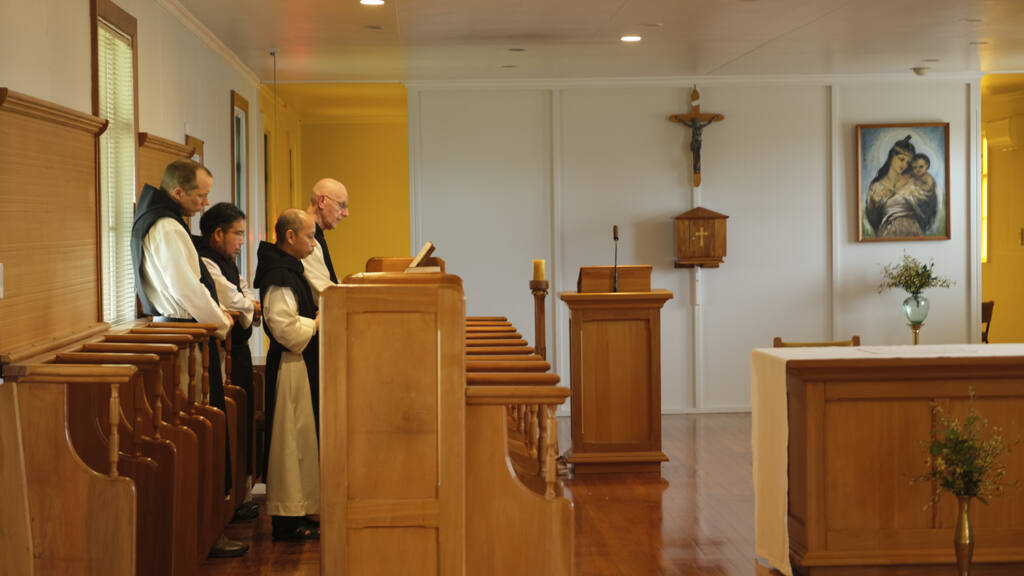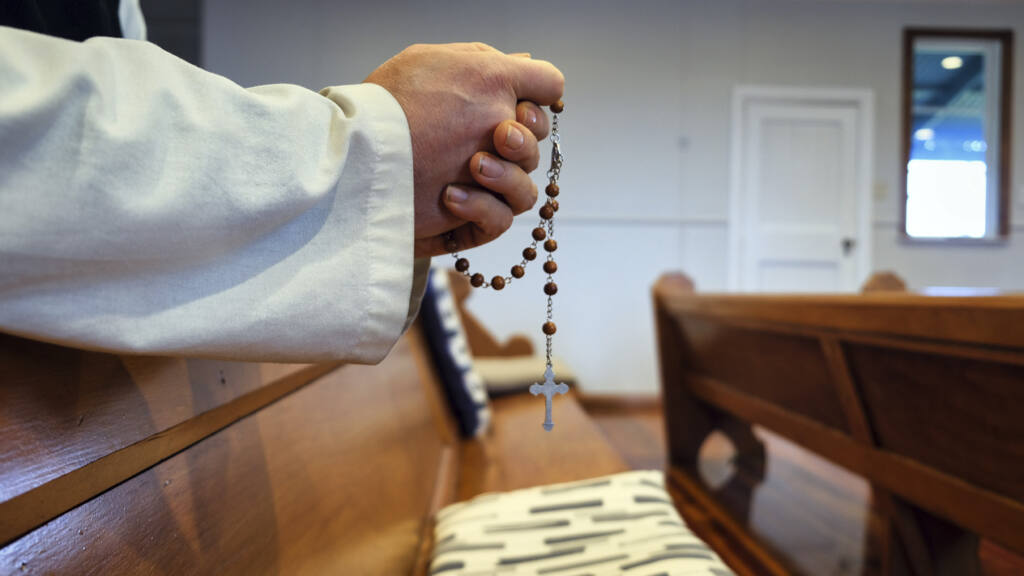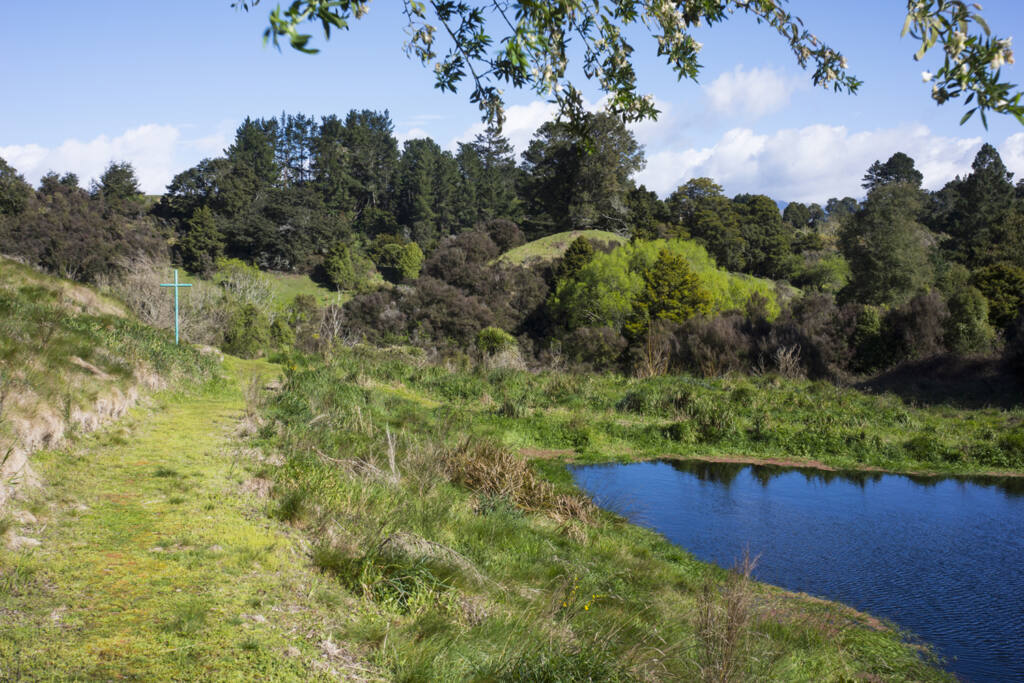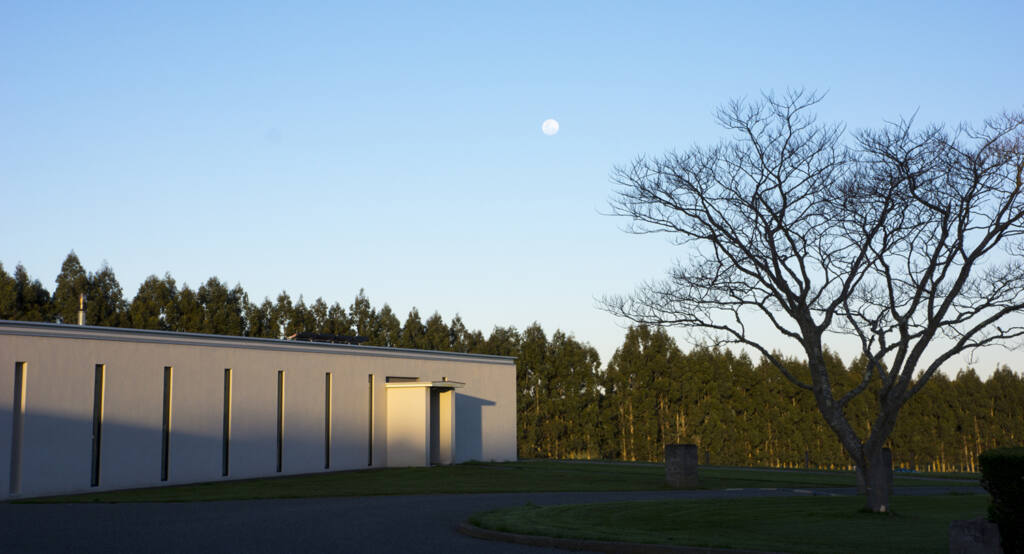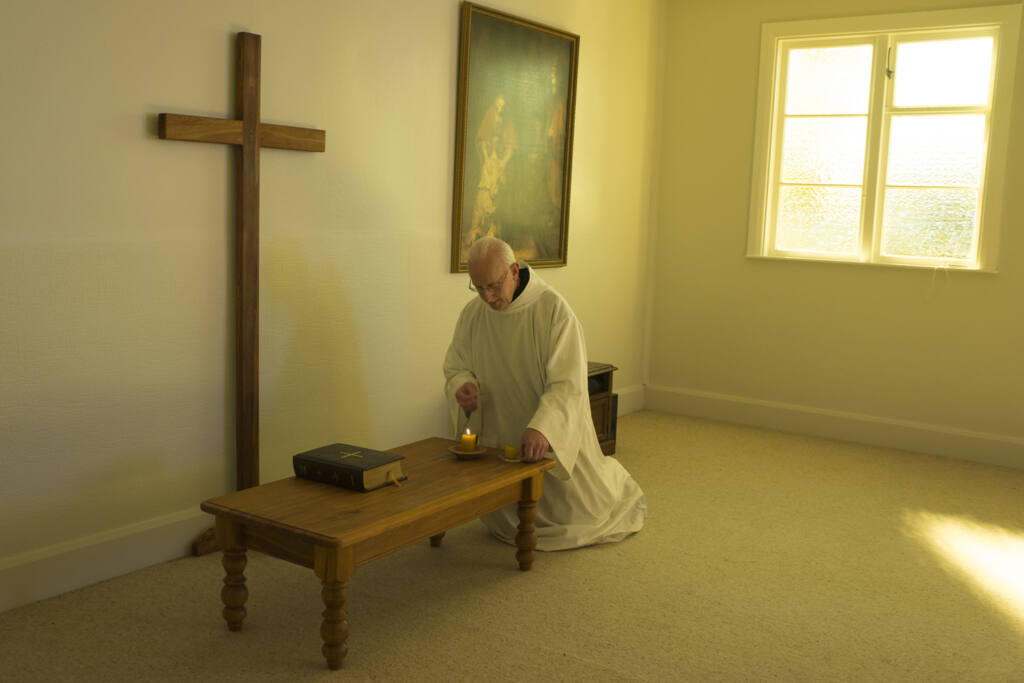WelCom April 2023
Day of Prayer for Vocations – Seminary Collection
30 April 2023
and National Vocations Awareness Week
30 April–6 May 2023
World Day of Prayer for Vocations is observed this year on Sunday, April 30, 2023. It is also known as Good Shepherd Sunday. The purpose of this day is to fulfil the Lord’s instruction to, ‘Pray the Lord of the harvest to send labourers into his harvest’ – Mt 9:38; Lk 10:2.
National Vocation Awareness Week is an annual week of the Catholic Church dedicated to promoting vocations to the priesthood, diaconate and consecrated life through prayer and education, and to renew prayers and support for those considering these vocations.
There will be a page on the National Liturgy Office website nlo.org.nz dedicated to the Day of Prayer for Vocations, Sunday 30 April, and for National Vocations Awareness Week, which will include prayers.
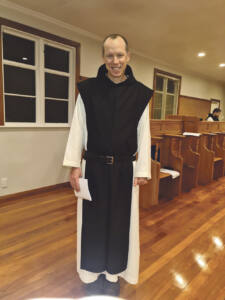
Life at Kopua: The Novitiate in a Cistercian Monastery
Br Jonathan Craven, a junior monk of Kopua Monastery in Central Hawkes Bay, shares insights into his vocation.
Early formation is a time for asking questions.
When the Cistercian monk St Bernard of Clairvaux first joined Citeaux monastery in the 12th century he would repeatedly ask himself ‘Ad quid venisti?’ – ‘to what have I come?’ Christ slowly gave him the answers he was seeking. And today too, Jesus speaks in many ways to those who set forth on the adventure of monasticism. He settles questions and sows the seeds of new ones too.
The main formator in a monastery is the Holy Spirit, who can be found everywhere. One of the prime areas where the Spirit works, is the community of monks itself. I have found that the experienced senior monks are happy to respond whenever asked to my questions, but it is often enough just to observe them going about our life with devotion and humility that my questions find sense and purpose.
The great anchor of our life is praying the liturgy of the hours. Gathering to pray in church seven times a day helps to form our vocation by building virtue through attendance, focus and the prayers themselves. We experience God through joining our voices to the writers of the Psalms who turned to God for a vast range of reasons: from lament to gratitude, from plead to praise. Reflecting on all that human mix, our prayers too contribute to the salvation of humanity. I marvel at how the Church Fathers formed the liturgy and how it evolved over the centuries as a coming together of our human needs, including the desire to offer praise, and God’s overflowing providence towards us.
Lectio divina or holy reading is another source of growth that monks are encouraged to engage in on a daily basis. In recent decades, this practice has become popular well beyond the walls of monasteries. While sometimes challenging, it too can result in much healing, wellbeing and wisdom.
During the Novitiate of two years, much time in formation is also given to studying the Rule of St Benedict. Our Cistercian Life is a reform of Benedictine life. Over the centuries many enriching commentaries and reflections on the Rule have been written by gifted men and women. Described as wisdom literature, the Rule has poetic qualities and so the contemporary student of the Rule benefits greatly from the commentaries and insights that they suggest, which preserve the intent of St Benedict yet adapt to our times.
Study is of course part of the Novitiate programme too. The various topics we study include psychology and history. The Desert Fathers and Mothers were the first monks and nuns in the 3rd and 4th centuries. They were fascinating people and, far from being ‘removed’, they had a great understanding of human nature and of God.
Naturally, we also study great figures from our own religious family including St Bernard and the early Cistercian Fathers from the 12th century. They were brilliant writers who reflected on the questions of their age as well as the questions that endure. Then from our own times is the great spiritual testimony of the martyred Cistercian monks of the Tibhirine Monastery in Algeria. Learning about these great figures helps us grasp the Cistercian spirit and the depths we now are so privileged to have access to. The quest for virtue, in a humble way, makes us all great and along with our prayer is our one sure contribution to the life of the Church, the people of God.
We monks of Kopua are happy that on the 25 March, Jeffrey Russell, a local from Dannevirke, having completed his postulancy, has received the habit and entered the novitiate.
Please pray for him on his vocation journey.
Underlying principles in vocations awareness
- Each of us is called by God. This call is rooted in Baptism and is a way of participating in the mission of Jesus. The promotion of vocational awareness is the responsibility of every baptised person.
- There is a rich variety of calls given by God.
- Most people are called to marriage. Some people are called to be single, and others are called to be sisters, brothers, priests or deacons. All vocations are equal and make up the Body of Christ.
- The seeds of many religious vocations are sown in childhood, even though the person does not make a vocational decision until adulthood.
- Sisters, priests, deacons and brothers are ordinary people who don’t claim to be perfect, but desire to be of service in how they live and work.
- To be a brother, sister, deacon or priest can be an exciting life.
- Priesthood, permanent diaconate and religious life are for healthy, happy and energetic women and men.
- A celibate choice is a valid and healthy way of loving that demands an integrated sense of self and one’s sexuality.
- Personal invitation continues to be the main reason someone chooses to consider religious life, the diaconate and priesthood as possible options.
- There is need for education regarding the language used in relation to: vocations, ministry, religious life, priesthood, diaconate, for example charism, vows, formation, novitiate.
- Religious life, priesthood, diaconate continue to evolve in ways rarely presented by the stereotypical images in the media. Based on ‘A Future Full of Hope’ – Parish Leadership (NCCV Chicago).
Source: Serra Council of Australia, New Zealand, and the South Pacific
(www.scanzspac.org)
